Inside Edition’s Lisa Guerrero On The Five Things You Need To Create A Highly Successful Career As An Investigative Correspondent
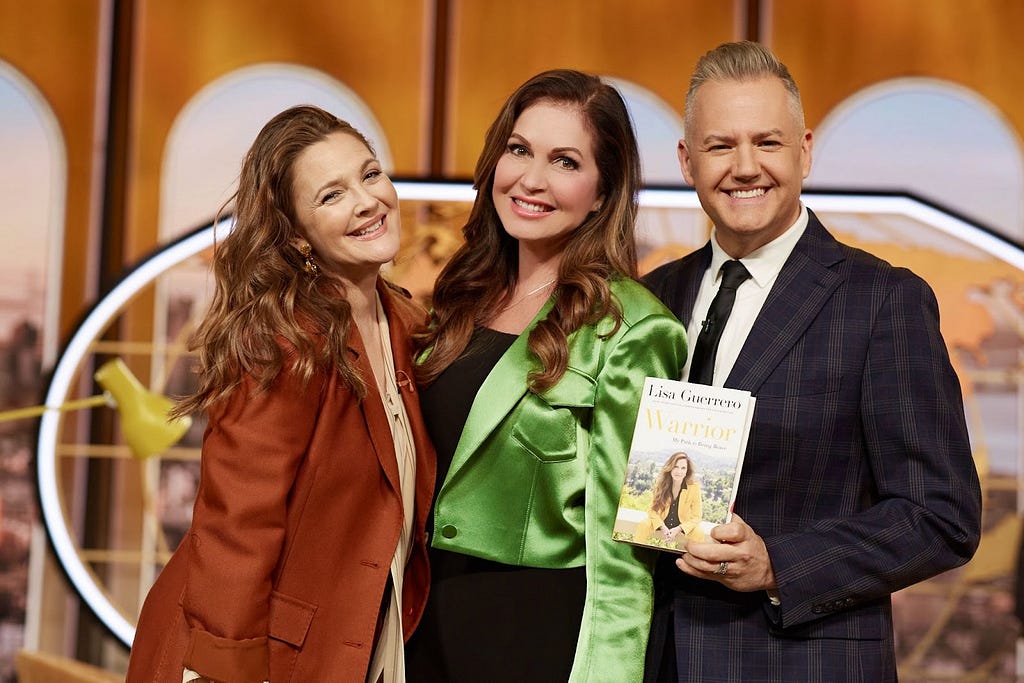
…Number three, once you’re ready and have honed your skills, don’t be afraid to demand your place. Refuse to take no for an answer. Find a niche where your expertise can benefit a magazine, a TV show, or a blog. First, understand your worth and then assertively say, “I belong here.” Never apologize for wanting the job; go after it with determination.
I had the pleasure to talk to Lisa Guerrero. Lisa, born in Chicago, Illinois, is a multifaceted talent with an expansive career. She’s renowned for her role as the award-winning chief investigative correspondent for Inside Edition, television’s longest-running, top-rated, and most-honored syndicated newsmagazine, where she pursues compelling stories and investigative reports.
Guerrero’s journey in media began in the 1980s. Initially, she cheered for the Los Angeles Rams, before transitioning to roles as the Entertainment Director for the Atlanta Falcons and New England Patriots. She later ventured into acting, with significant roles in shows like Aaron Spelling’s Sunset Beach and guest appearances in popular series like Frasier, Cybill, and George Lopez.
Throughout her career, Lisa has demonstrated her versatility, from starring in Batman Returns to anchoring sports for KCBS-TV in Los Angeles. By 1999, she transitioned to the Fox Network, participating in shows such as Sports Geniuses and The Best Damn Sports Show Period. In 2003, she joined ABC’s Monday Night Football as a sideline reporter, and in 2006, she graced the cover of Playboy magazine as the celebrity cover model. That same year, she began her tenure at Inside Edition.
In recognition of her extensive journalistic contributions, she’s garnered over 35 national journalism awards since 2010. Her stories range from undercover exposés to investigations into horse slaughter farms in Florida.
Lisa’s creativity isn’t confined to television. She’s appeared in 18 film and television projects, and in 2007, she played a lead role and served as an executive producer for the independent film A Plumm Summer. Moreover, she’s a published author. Her memoir, “Warrior: My Path to Being Brave,” released in January 2023, provides readers an intimate look into her life, detailing her journey from a grieving child to a courageous investigative journalist. This memoir isn’t her first foray into writing; in 2016, she penned “Jewelry For Your Table,” a crafts book on table setting.
Lisa’s recent projects include hosting “Secrets of Playboy” on A&E, available for streaming on HULU and A&E. As an esteemed figure in journalism, she’s slated to be a keynote speaker at the Society of Professional Journalists’ 2023 Journalism Conference in Las Vegas.
To learn more about Lisa and her endeavors, visit her official website, www.lisaguerrero.com, or follow her on Instagram at @4lisaguerrero.
Lisa, it’s a pleasure to meet you. Before we get into things, our readers would love to hear about your personal background. Can you tell us about your childhood and how you grew up?
Of course, I’d be happy to share. My mother hailed from Chile, South America, and she made the move to the United States when she was just 16. Over time, she mastered the English language and a few years later, fate brought her to my dad, who was then a student at the University of Chicago, studying Social Service. He eventually earned his master’s degree in that field, and together, they embarked on careers as social workers and volunteers with the Salvation Army.
My mother also worked as a translator, and within a couple of years, our family relocated to San Diego so I spent my formative years in Southern California, dividing my time between San Diego and Huntington Beach. It’s quite an interesting background, you see. My mother was a South American immigrant, while my father, from his side, had deep American roots that traced back before the Revolutionary War. So, you could say I’m a true blend of immigrant heritage and a centuries-long American connection.
Growing up in San Diego, my life took an unexpected turn when my mother was diagnosed with lymphoma when I was just eight years old. Tragically, she passed away at the tender age of 29. However, before her passing, she shared some profound words with me. She said, “Never forget your last name. Guerrero means warrior. You were born to fight.” At eight, I had no clue what that meant — what being a “Guerrero” or a warrior entailed. It took me many decades to truly grasp the significance of those words. That’s why I eventually penned my book, titled “Warrior: My Path to Being Brave.” It’s all about connecting the threads of my ancestry, honoring my mother’s legacy, and earning the title of “warrior” by overcoming numerous challenges in my life. I feel like the warrior my mother meant for me to be, but it was a journey filled with pain and trauma, which I delve into in my book.
Where does the name “Guerrero” come from? Did it have any significance in your family’s history, like an ancestor being a warrior or something of the sort?
“Guerrero” is actually a rather common surname in Latin America. In Spanish, “Guerrero” directly translates to “warrior.” It’s as ubiquitous as “Smith” is in South and Central America, so most Spanish speakers are quite familiar with the term. My aim was to uncover how this name related to me personally, especially since my mother’s maiden name was Lucy Adriana Guerrero. When she married my dad, Walter Coles, she adopted his last name, and I was born as Lisa Coles. However, as I grew into adulthood, I made the deliberate choice to legally change my last name to Guerrero. This change not only reflects my heritage but also serves as a poignant reminder of the message my mother imparted to me before her untimely departure.
So can you share with us what brought you to this career as a successful journalist and news anchor?
Absolutely, I’d be happy to share my journey into journalism and news anchoring with you.
My career didn’t follow a straight line at all. It wasn’t like I was a little kid dreaming of becoming an investigative reporter one day. My path was a bit unconventional. After my mom passed away, my dad introduced me to theater therapy, which got me interested in acting. He was also a huge sports fan, so he taught me all about sports. I even wanted to be the quarterback for the San Diego Chargers at one point, and my dad never discouraged me. He even taught me how to throw a perfect spiral. For a while as a kid, I genuinely believed I could be the Chargers’ quarterback. As I got older, I realized I had two valuable skills: my sports knowledge and my comfort in front of the camera and on stage. I combined these skills to carve out a career for myself as both an actress and a sportscaster.
Before my sportscasting career, I spent a decade in the world of NFL cheerleading. I cheered for the Rams for four years and later became a cheerleader director and choreographer for the Atlanta Falcons and the New England Patriots cheerleaders. During that time, I learned a lot about the business side of football, from selling tickets to securing sponsorships and managing game-day entertainment.
After my cheerleading career, I transitioned into sports casting. I started at CBS2 in Los Angeles and later joined Fox 11, where I was discovered by David Hill, who was the CEO of Fox Sports Net at the time. This led to an overall deal with Fox Sports, and I hosted various sports shows, including “Sports Geniuses” and “Tough Man.”
The turning point in my career came when I became the first female co-host on the show “The Best Damn Sports Show Period.” Later, I became the sideline reporter for Monday Night Football on ABC in 2003, but unfortunately, that didn’t work out, and I was let go after just one season. It was a tough time for me, and I even struggled with depression and thoughts of suicide.
Thankfully, I sought help, talking to my dad and a therapist. After a year of self-reflection and healing, I decided to rebrand myself. Surprisingly, posing for the cover of Playboy magazine played a role in my comeback. During the press tour, I made it clear that I wanted to transition from sports to news. “Inside Edition” heard about my story, did a feature on me, and offered me a two-year contract as their west coast correspondent.
That was 17 years ago. In 2010, I was promoted to chief investigative correspondent, and since then, I’ve conducted over 650 investigations for “Inside Edition,” covering various topics like crime, scams, and consumer reports. It’s been an incredible journey, filled with ups and downs, but I’ve found my calling in investigative journalism.
As for your question about the investigations themselves, I’m actively involved in every step. We have an investigative team, and we all pitch story ideas to our executive producer. Once a story is approved, I travel to different cities and countries, conducting interviews with victims, survivors, and experts. I also confront alleged criminals in the field, which can be quite challenging and sometimes dangerous. When it’s time to air the story, I provide the voiceover narration after the script is approved, and I actively promote our stories on various media platforms.
One of the most memorable encounters I’ve had was during an investigation called “Justice for Juliet.” It was a series of stories over a couple of years where a woman named Monica Hall reached out to me on social media. She told me about her niece, Juliet Gertz, who had been tragically killed while in her crib. The case had gone cold for four years, and no arrests had been made.
With the support of my senior producer and executive producer, we decided to investigate. We tracked down all three suspects, including Juliet’s mother, her boyfriend, and their friend who was present that night. On camera, the friend and the mother turned on the boyfriend, Dustin Chauncy, accusing him of the crime. I then confronted Dustin Chauncy myself.
Our interviews aired on “Inside Edition,” and shortly afterward, a grand jury arrested him. He was eventually found guilty and is now serving 80 years to life in prison for the murder of Juliet Gertz. It’s stories like these that remind me of the impact investigative journalism can have, and I’m proud to be part of a team that brings justice to those who need it.
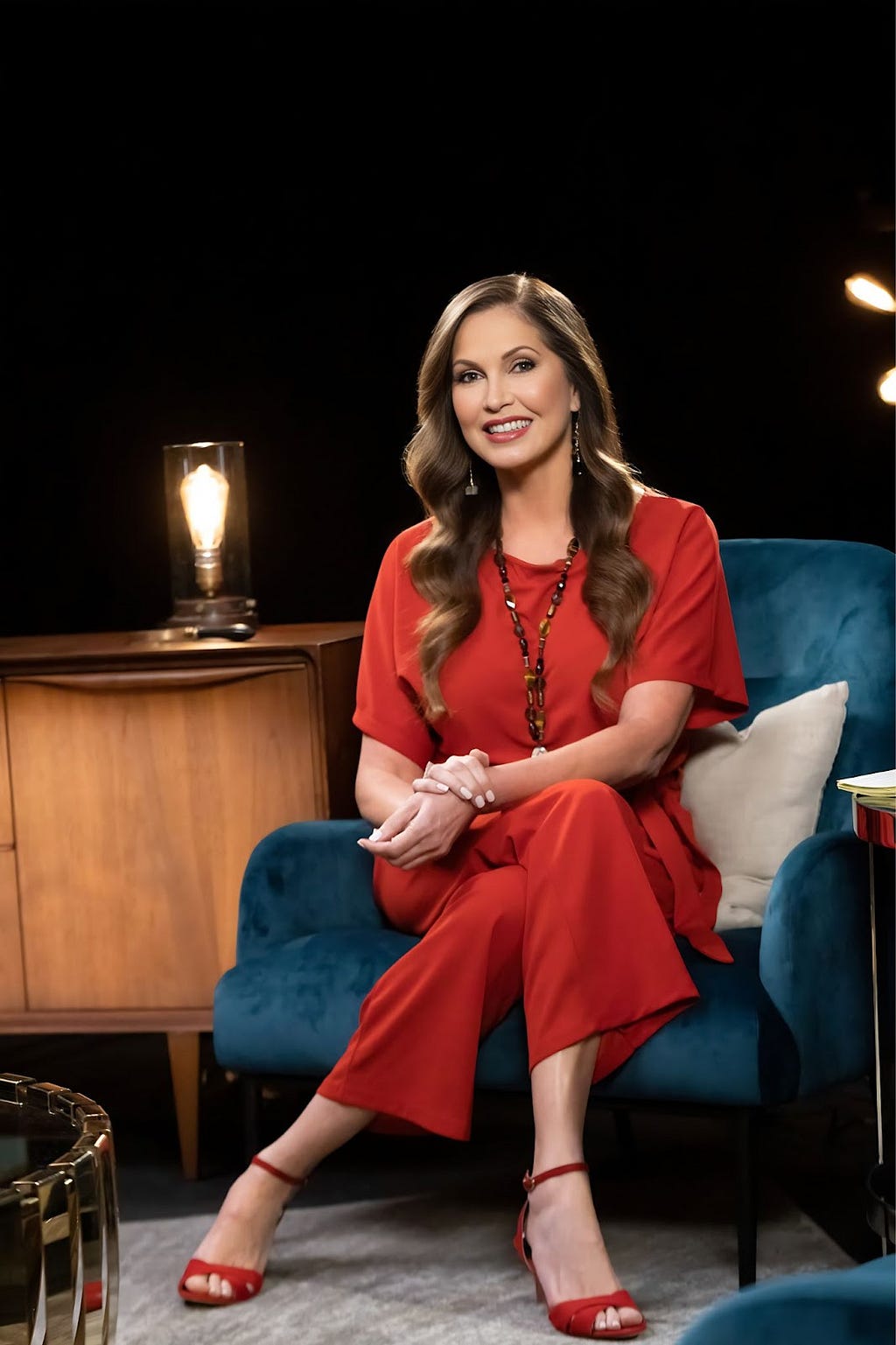
It’s been said that sometimes our mistakes can be our greatest teachers. Can you share a story about a humorous mistake that you made when you were first starting? And the lesson you learned from it.
Oh, a humorous mistake, let me think. Well, I’ve made quite a few in my time, but here’s one that stands out. It’s a bit of a laugh, and it’s also a lesson in its own way. Back in the early days of my career, I had an audition for a TV show called Sports Geniuses. They were on the hunt for a female co-host to join the already-cast male host, Matt Surin, for a sports trivia game show. Now, I knew my sports inside out, and I’d been a sportscaster for a while, so I was feeling pretty confident.
I showed up for the audition dressed to the nines in a sharp suit, ready to impress them with my sports knowledge and on-camera skills. Long story short, I nailed the audition, and they hired me on the spot as the co-host. Excited, I showed up for my first day of work, eager to find out what elegant outfit I’d be wearing on the show. That’s when I saw it — a rack of leotards, tights, and bra tops.
I turned to the wardrobe person in disbelief, asking, “Where are my clothes?” She casually pointed at the leotards and said, “That’s your wardrobe.” I couldn’t believe it. I was about to look like a Zumba instructor on national TV, and I was not thrilled about it. So, I did what any disgruntled actor would do — I called my agent.
I complained to him about having to wear this outfit that was far from what I had in mind. And what did he say? He laid it out plain and simple. “You’ve got two choices,” he said. “You can wear the leotards and make good money and gain national exposure, or you can quit, and they’ll find someone else who’s willing to wear them and showcase their sports knowledge on TV.”
Now, instead of making the right decision, which would have been to stand my ground and insist on wearing a suit, I reluctantly donned the leotards. Throughout the show, I couldn’t help but let my bitterness shine through, and I became known as the smart aleck co-host. People actually thought it was part of my character, but in reality, I was just fuming about my outfit.
The surprising twist is that the show became a huge hit. It propelled me into the national sports casting scene, and I eventually got gigs where I could wear the kind of clothes I wanted. Looking back, it’s a funny story, but it’s also a bit painful because I know I made the wrong call. I should’ve stuck to my guns and insisted on looking professional. Instead, I caved in and ended up in those leotards. I’m still mad at myself for that.
It’s a quirky tale, but it also highlights something deeper — a common struggle that many women face, not just in sports casting but across the entertainment and media industries. We often have to meet different standards, worry about our appearance, and go through all that hair and makeup stuff, while some guys can just stroll in as they are. It’s an unfortunate reality, but it’s a reality nonetheless. So, that gives us a different set of things we have to worry about instead of just our job.
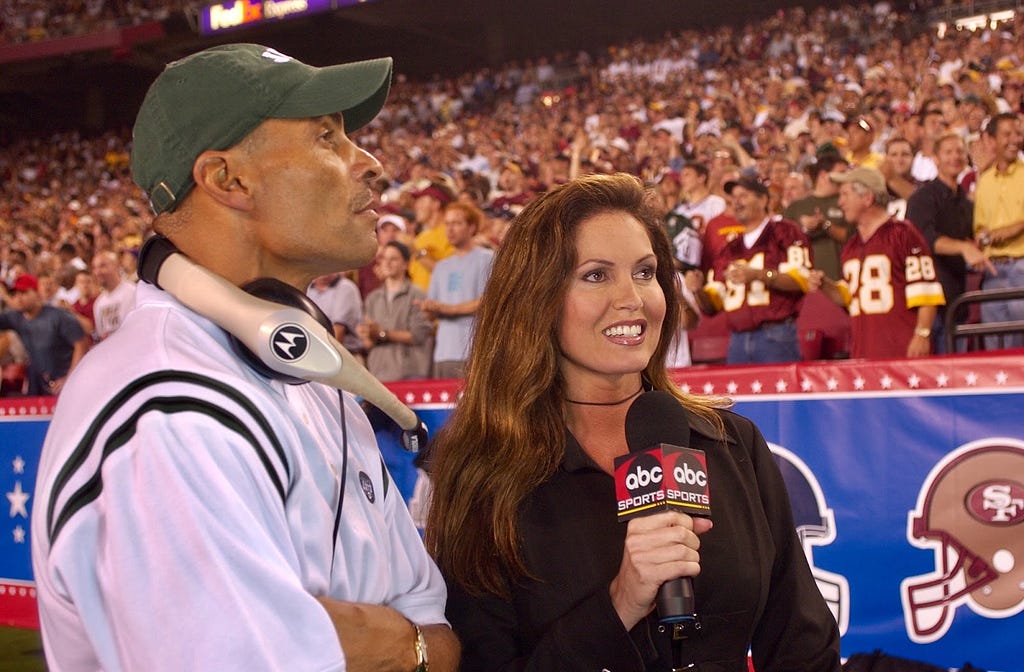
Is there a person who made a profound impact on your professional career? And if there is, could you share a story about that person?
My first cameraman, Rodney Hunt, when I was working for CBS, had a significant impact on me. It was back when I was assigned to cover the visiting team’s locker room at Dodger Stadium. I needed to get an interview with the opposing team’s manager. So, I had to walk through the locker room of the other team to reach the manager’s office. This was in the nineties, a time when there weren’t many women in locker rooms.
As I walked through that locker room filled with players who didn’t know me, I started hearing catcalls, whistles, and comments directed at me. The Dodgers knew me and treated me with respect since I covered their games regularly. However, this other team wasn’t familiar with me, and I found myself in an uncomfortable and alarming situation. I felt fear while doing my job, and it was quite humiliating and embarrassing. I froze, like a deer caught in headlights.
My cameraman, Rodney, was right there behind me. He noticed my distress, so he swiftly lifted his camera onto his shoulder, turned on the light, and started recording the entire room, capturing all those guys who were whistling and making comments. As if by magic, they suddenly fell silent when they realized they were being recorded. Rodney spoke loudly enough for everyone to hear, saying, “Lisa, that’s the power of the media. You have the final say, the last word.”
That incident left a lasting impression on me. I understood then that as journalists, we possess the power to expose wrongdoing and shed light on important issues. Journalism gives us the ability to influence and help people by showcasing both the positive and negative aspects of the world. In that moment, I realized that I held the power in every situation because I am a journalist, and I have the privilege of telling my own story.
You mentioned your book. Can you share with our readers why we should buy it, why it’s important and what you aim to accomplish with the message of the book?
After 30 years on camera as a journalist and 40 years on camera as a journalist and actor, I have a lot of stories to share about what really goes on behind the scenes in sports, on film sets, and on television shows that you’re really familiar with, like Batman Returns and Frasier. I thought I had a lot of really good stories to tell, but also stories that have a lesson to them, where I learned something, and I hope other people can learn things too.
So, for anyone interested in the worlds of sports, media, journalism, film, and television, this book is going to be really interesting for you. But it’s also going to teach you about how to overcome challenges, personal challenges. Towards the end of my book, I share different steps you can take to become more courageous, to follow your dreams and see them through, to rebrand yourself, to look at yourself and your career differently, and to achieve the goals you set for yourself.
I think it’s a really good handbook on how to be brave. It’s called “Warrior: My Path to Being Brave,” but it also lays out a path for you to be brave too.
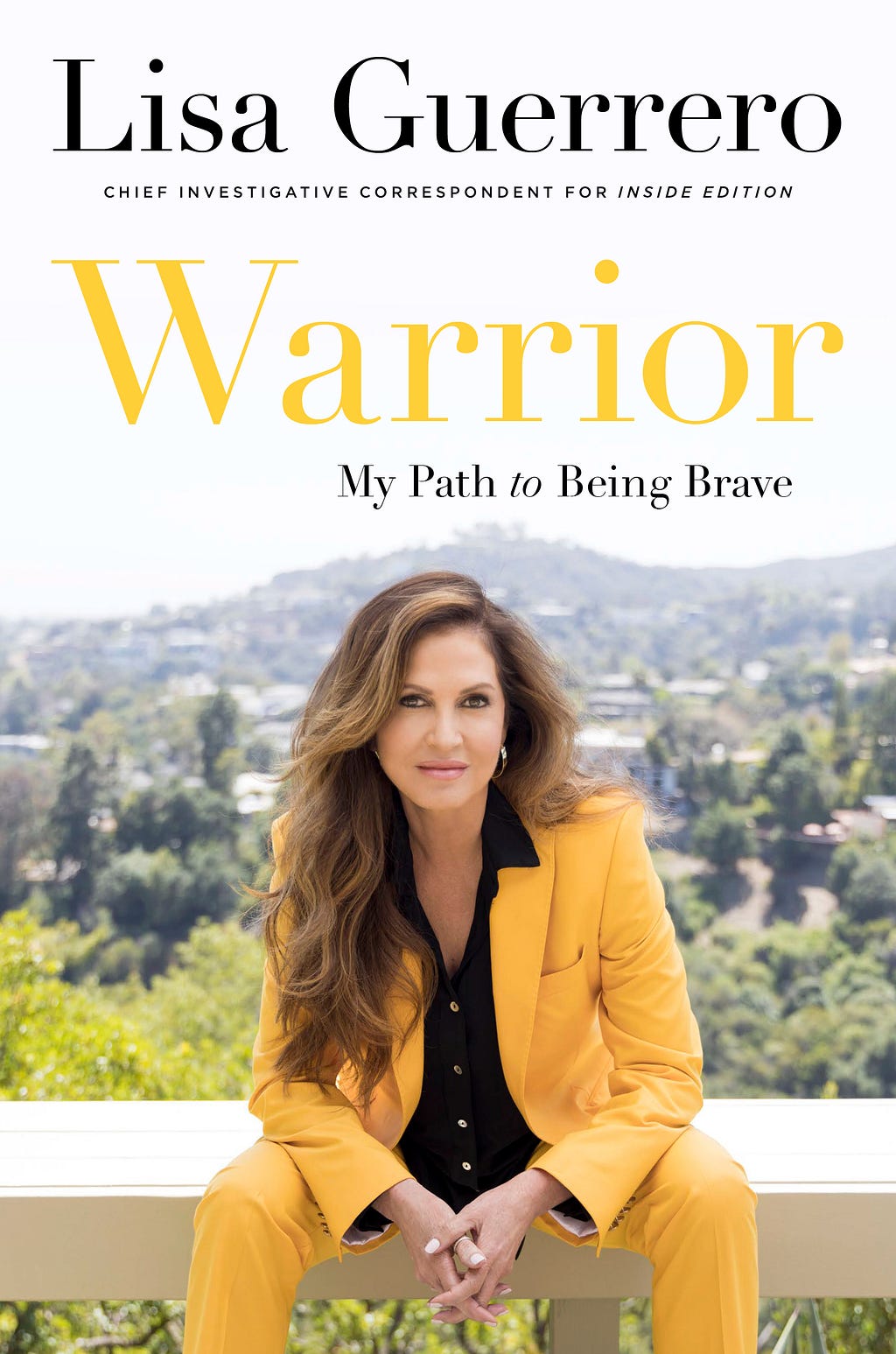
Amazing. So this is our signature question that we ask in all of our interviews. You’ve accomplished so much now and you’re very experienced. Can you share to an aspiring journalist or an aspiring anchor, the five things you need to be a successful investigative journalist?
- Of course, happy to share. The first and foremost thing you need to do is to be yourself. It means writing and presenting your work in a way that’s true to who you are. In journalism, especially, it’s crucial to bring in your personal experiences, culture, beliefs, and everything that makes you unique. This authenticity not only inspires others but also builds trust. People need to know that you’re genuine and delivering real news. So that’s the first one.
- Secondly, I’d recommend studying the craft. Look up to the journalists you admire, dissect their stories, and read their work. Dive deep into the world of journalism. Whether it’s through formal education in broadcast journalism, English, or writing, or just extensive self-learning, understanding the history and dynamics of journalism is vital. So, in short, study, study, study.
- Number three, once you’re ready and have honed your skills, don’t be afraid to demand your place. Refuse to take no for an answer. Find a niche where your expertise can benefit a magazine, a TV show, or a blog. First, understand your worth and then assertively say, “I belong here.” Never apologize for wanting the job; go after it with determination.
- Fourthly, when you do secure your spot, practice ethical journalism and empathy. As journalists, we often refer to ourselves as storytellers, but it’s equally important to be good listeners. Don’t just pigeonhole people or make assumptions. Empathize with the stories you encounter. Listen deeply before you relay those stories to others. Being empathetic and ethical are non-negotiable.
- Lastly, always keep an eye out for red flags. If you notice issues or problems in your workplace or with the people you work with, don’t shy away from reporting them. There’s a misconception that you should always “be nice” and not create waves, but that’s not always the right approach. If you witness wrongdoing, harm being done, or even if you’re personally affected, speak up. If it’s severe, report it to the appropriate authorities, and if necessary, leave the situation. Don’t worry about burning bridges; sometimes, you have to clear your own path, even if it means breaking a few ties along the way.
As a fellow journalist, you know, our industry is facing two big challenges. On one hand, there’s a huge distrust in the mass media. According to a recent Gallup poll, only 36% of Americans trust the mass media. And on the other hand, the business model for journalism has changed dramatically. Advertising has shifted from journalism to platforms like Google and Facebook. So I have two important questions for you: First, what can we do to increase trust in the mass media? And second, how can we fix the business model to support and sustain journalism, especially local journalism, in the future?
Well, my favorite reporter is Christiane Amanpour from CNN. She often says something really important that every journalist should focus on every day. Every single time you approach a story, you should think about being truthful, not neutral. Over time, when you do that consistently, your viewers or readers will trust you because they’ll know that you’re telling the truth, even when it’s painful. Sometimes there’s no need to present both sides of an argument because sometimes there’s a clear right and wrong. You have to choose right, good, and truth. Over time, people will trust you for that. If all journalists did that, people would trust journalists more. The problem is that some outlets, like Fox News, aren’t telling the truth. They’re regurgitating what they think their viewers want to hear, and that damages the credibility of all journalists. So, be truthful, not neutral. That’s my first point.
Secondly, you mentioned the economic challenges in journalism. We have to change our approach to journalism. I’m actually giving the keynote speech for the Society of Professional Journalists National Convention in Las Vegas tomorrow. One of the key points I’ll emphasize is that journalism is received differently now. Many young people get their news on platforms like TikTok, YouTube, or Twitter. We have to consider how we share our stories. Also, we need to prioritize original reporting. Don’t just copy someone else’s story from the internet; go out into your community and report on what you see. Citizen journalists play a crucial role in this, too. They capture events on their phones, and these videos often become news stories. We all share the responsibility of storytelling and journalism, not just those who are paid for it.
Moreover, we need to understand that the way money flows in journalism has changed. We can’t cling to the old model of people reading newspapers in the morning for their news because that’s not how it works anymore. Even local newspapers have a strong online presence now. Over time, I believe there will be a better balance between technology and where advertisers invest their money. I’m fortunate to work for Inside Edition, a show that’s been around for 35 years. We have one of the very few national investigative units that does original reporting daily on syndicated television. We’re number one, with 5 million viewers a day and 12 million subscribers on YouTube. Even we recognize the opportunity in digital media. My stories, for instance, may be only 2.5 minutes on broadcast, but they’re seven minutes on YouTube. So we’re shifting because we know there’s money in digital media. Every media outlet should see this as an opportunity to reach new readers and viewers.
Beautiful. This is our final question, Lisa. Because of your great work and the platform you’ve created, you’re a person of enormous influence, and people take your words very seriously. If you could spread an idea or inspire a movement that would bring the most amount of good to the most amount of people, what would that be?
Practice empathy. We all go about our lives with a lot of notions about labeling people or stereotyping them, thinking we understand what that’s about without reading about it or getting to know them. We make snap judgments all the time, every day. So if I could say one thing that I think would help everybody, including those in politics, it would be to practice empathy. Understand that you need to step out of your bubble, your understanding of the world, your community, and your culture. Get out there, read about others, interview people, talk to them. Don’t sit alone at the bar at the end of a workday; go and try to engage with somebody. Read books, understand different people’s experiences. Once you do that, once you have empathy for others, it changes how you look at the world. It makes you a kinder person, ready to jump into action if you see wrongdoing. So when someone does something to you or someone else, you speak out on their behalf when you have practiced empathy.
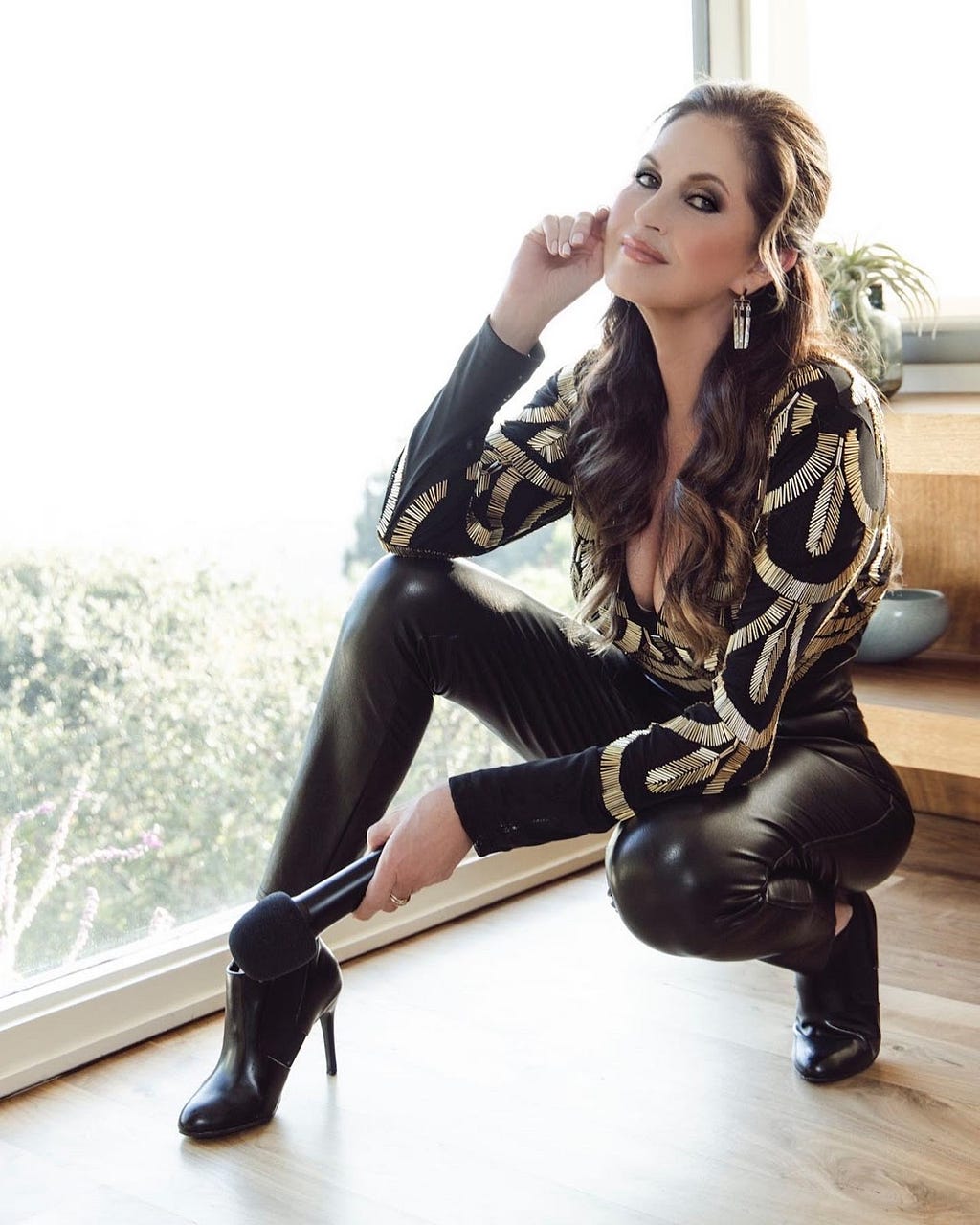
Lisa, how can our readers continue to follow your work? How can they purchase your book? How can readers support you in any way?
I’m really excited to announce that my books are finally available on my website, LisaGuerrero.com. If you visit my website and purchase one of my books, I can actually autograph it for you and personalize it with a note on the title page. I’ll even stamp it with an autograph. So I put that on all the books I’m signing, and then I can ship it directly to you or to whoever you’re gifting it to, especially with the holidays coming up. They’re also available at bookstores like Barnes and Noble and on Amazon, but if you want an autographed copy, come to my website. Also, I’m available on all the social media platforms. I’m @4LisaGuerrero on Twitter and Instagram. I also have an official Facebook page at Just Lisa Guerrero. I’m planning to launch on TikTok soon, so you’ll be able to find me everywhere,
Lisa, it’s been such a delight and an honor to meet you, and I wish you continued success and good health.
Thank you. I appreciate your time.
Inside Edition’s Lisa Guerrero On The Five Things You Need To Create A Highly Successful Career As… was originally published in Authority Magazine on Medium, where people are continuing the conversation by highlighting and responding to this story.